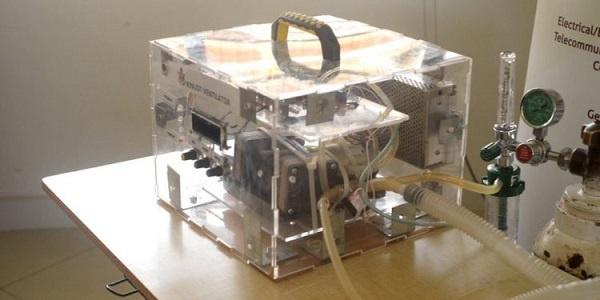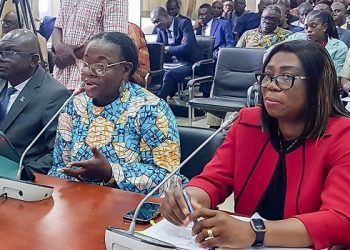An intervention that will significantly provide some relief as far as healthcare delivery in these disturbing times is concerned, has been designed by some researchers at the College of Engineering of the Kwame Nkrumah University of Science and Technology.
The automated ventilator meant to help patients with breathing deficiencies and disorders is expected to see full operationalisation soon.
Authorities at the university say the prototype of the ventilator is the result of a collaborative project which began in early 2017, between the Computer Engineering Department of KNUST and the Michigan Technological University of the United States.
Michigan Technological University developed a prototype ventilator which they named IBV Ventilator, and later in 2017, KNUST project students from the Biomedical Engineering Department succeeded in coming out with another prototype; the KNUST Ventilator.
Prof. Kwame Osei Boateng who lead the team attributed the delay in completion to lack of funding.
Work was however fastened on the project in the wake of the Coronavirus pandemic, so it could help especially with the growing need for ventilators.
According to the team, a sum of about twenty thousand Ghana cedis has so far been spent on a prototype of the design which they believe will be produced in mass quantities and at affordable prices if it is certified and given the necessary financial support.
Provost of the College of Engineering, Prof. Mark Adom Asamoah who is hopeful the ventilator starts full operations in a month’s time emphasized its importance in the fight against coronavirus and other respiratory illnesses.
“There are a lot of people who are struggling to breathe out of ailments. However, the cost of commercial ventilators is very high and very few people can afford them. So this effort is to find a way of producing these ventilators at a very low cost. Our aim is to make sure that every district or community hospital would have one of such ventilators to help the national effort in trying to solve basic health problems.”
The university believes cooperation with the Ghana Health Service will help build on the invention to meet industrial standards and facilitate a seamless process of conducting a clinical trial of the final product.
Ashanti Regional Clinical Engineer at the Ghana Health Service, Ing. Eric Sackey, on his part, lauded the team’s effort, whilst bemoaning the inadequate number of ventilators in the country.
“In the Ashanti region, it is only Komfo Anokye that we have. So let’s assume that we have these acute situations and we need to bring ten patients on board to Komfo Anokye, it would be difficult. So the Ashanti regional director of the Ghana health service’s heart gladdens to hear this good news that we want to come out with a local one”.
Meanwhile, the Ghana Health Service (GHS) and the Ghana Standards Authority (GSA) have begun inspection of the project, with suggestions to make it better.
source: Ghana Web



















































